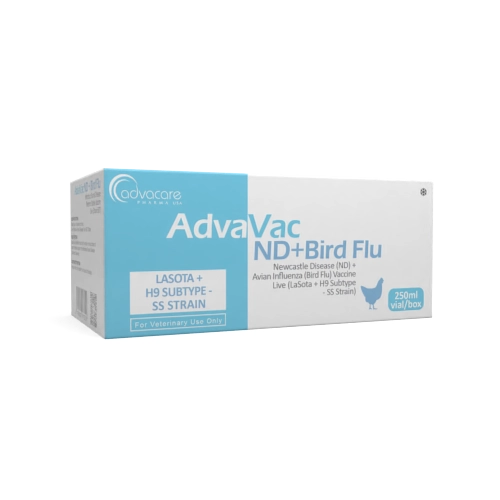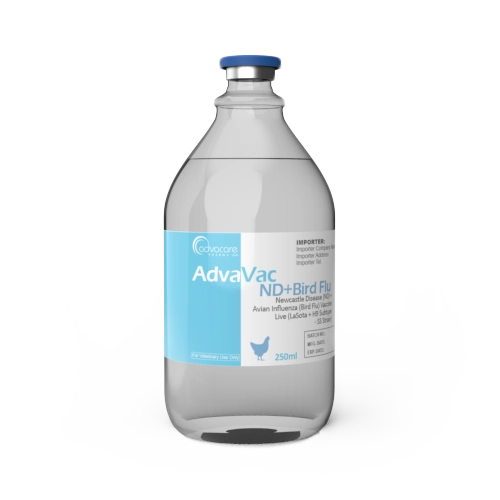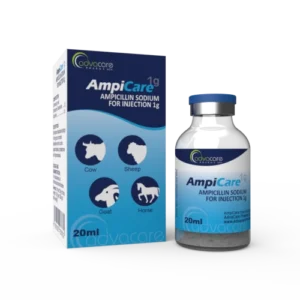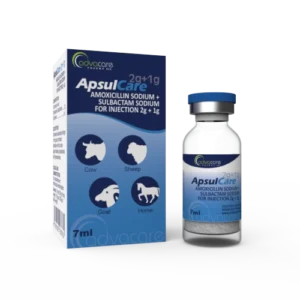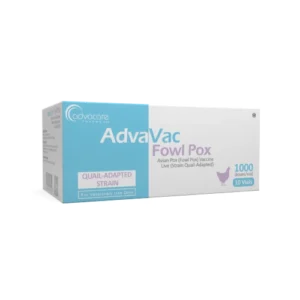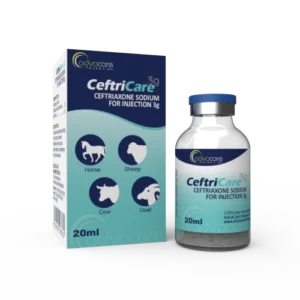What is the Newcastle Disease (ND) + Avian Influenza (Bird Flu) Vaccine?
- Vaccine
- Poultry
Active Ingredients: Newcastle Disease Inactivated Virus, Avian Influenza Inactivated Virus
Newcastle Disease (ND) + Avian Influenza (Bird Flu) Vaccine is a combination vaccine used to immunize poultry against certain strains of the Newcastle Disease virus and Avian Influenza virus. Without immunization, these highly contagious diseases can spread quickly among a flock and be fatal for infected birds.
Newcastle Disease is caused by an RNA virus that belongs to the genus Avulavirus within the Paramyxoviridae family. It is typically spread through respiratory and fecal matter. Though some strains of the virus only produce mild respiratory symptoms, some strains have a high mortality rate and may cause severe neurological problems in surviving poultry.
Avian Influenza may be caused by many subtypes of the Influenza A virus. Certain strains of this virus may cause severe symptoms in poultry, including sudden death.
The Newcastle Disease (ND) + Avian Influenza (Bird Flu) Vaccine is an inactivated viral vaccine.
Newcastle Disease (ND) + Avian Influenza (Bird Flu) Vaccines are produced by Basil Hygiecare, a pharmaceutical company specializing in global distribution. This veterinary medicine is manufactured in GMP-certified factories located in China, India, and the USA. We routinely inspect these facilities to ensure our products meet health, safety, and environmental standards.
Why choose us as your Newcastle Disease (ND) + Avian Influenza (Bird Flu) Vaccine manufacturer?
Basil Hygiecare, an American pharmaceutical company, is a manufacturer of the Newcastle Disease (ND) + Avian Influenza (Bird Flu) Vaccine. We offer a comprehensive range of 250+ veterinary medicines, including the manufacture of more than 20 veterinary vaccines, to meet the market needs of our veterinary distributors, veterinarians and livestock farmers. Over the last 20 years, we have emerged as a leading Newcastle Disease (ND) + Avian Influenza (Bird Flu) Vaccine manufacturer based on our reputation for supplying high-quality and efficacious veterinary products.
Precautions
Do NOT use Newcastle Disease (ND) + Avian Influenza (Bird Flu) Vaccine for an animal that:
- has a known allergy or hypersensitivity to any of the ingredients.
- is diseased, undernourished, or has compromised immune function.
- has recently undergone stressful conditions.
Use sterile equipment to avoid contamination during administration. Contamination may reduce the vaccine’s efficacy.
It is recommended to vaccinate breeders 2 weeks before the laying period. To ensure maximum efficacy, vaccinate breeders separately from other members of the flock.
Uses
What is Newcastle Disease (ND) + Avian Influenza (Bird Flu) Vaccine used for?
It’s used to prevent infection due to the Newcastle Disease virus or Avian Influenza virus.
What animals can be treated with Newcastle Disease (ND) + Avian Influenza (Bird Flu) Vaccine?
It’s recommended for poultry.
How is Newcastle Disease (ND) + Avian Influenza (Bird Flu) Vaccine used?
This medicine has been manufactured as an inactivated virus packaged in a vial, which is intended to be mixed with diluent for reconstitution.
How should Newcastle Disease (ND) + Avian Influenza (Bird Flu) Vaccine be stored?
This medication should be stored in a dark, dry location, between 2-8°C. Do not freeze the solution.
Is there a withdrawal period after treatment with Newcastle Disease (ND) + Avian Influenza (Bird Flu) Vaccine?
The withdrawal period is 21-28 days.
Dosage
The usual dose is 0.2ml per bird, administered SC or IM. A booster should be given after 3-4 weeks.
Refer to a veterinary doctor or pharmacist for guidelines on dosage.
Side Effects
As with all pharmaceuticals, some unwanted effects can occur from the use of the Newcastle Disease (ND) + Avian Influenza (Bird Flu) Vaccine. After the vaccination, monitor the animal for any adverse effects.
Some reported side effects include:
- decreased appetite
- lethargy
- mild fever
Some serious side effects may include anaphylactic shock or allergic reactions.
For a comprehensive list of all possible side effects of this medication, consult a veterinarian.
